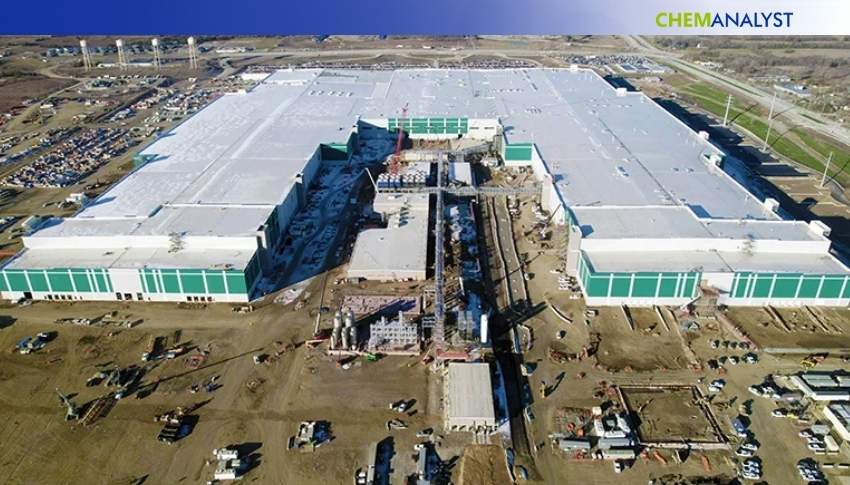Welcome To ChemAnalyst

Panasonic Energy launches mass production at Kansas battery factory, boosting U.S. EV capacity with 32 GWh annual output and 4,000 jobs.
Panasonic Energy Co., Ltd., a core company of the Panasonic Group, has officially launched mass production at its newly established lithium-ion battery manufacturing facility for electric vehicles (EVs) in De Soto, Kansas. Situated just outside Kansas City, this new facility represents a major milestone in Panasonic Energy’s expansion of North American operations and its push to strengthen domestic EV battery manufacturing. A ceremonial grand opening was held on July 14 to celebrate the commencement of operations at one of the continent’s largest EV battery manufacturing sites.
At the Kansas Factory, Panasonic Energy has started mass production of its 2170 cylindrical lithium-ion battery cells. Once fully ramped up, the facility aims to achieve an annual production capacity of 32 gigawatt-hours (GWh). Built on a vast 300-acre site—equivalent to more than 225 American football fields—the plant highlights the company's long-term investment and strategic commitment to a dual-region production model spanning Japan and North America.
This Kansas facility is Panasonic Energy’s second major battery manufacturing site in North America, following its Nevada plant in Sparks, which has been in operation since 2017. The Nevada plant currently produces approximately 41 GWh annually. Together, once the Kansas facility is operating at full scale, Panasonic Energy’s total production capacity in the U.S. will rise to roughly 73 GWh. This expansion will significantly contribute to meeting the growing demand for EV batteries from automakers scaling up their electric vehicle production.
Panasonic Energy has been refining its lithium-ion battery technology for nearly three decades, with a focus on high performance, safety, and efficiency. Over the past eight years, the company has manufactured over 11 billion battery cells at its Nevada facility, which employs over 4,000 people and stands among North America’s largest lithium-ion battery production sites. Building on this expertise, the company intends to quickly establish stable, high-volume output at the Kansas location.
The Kansas Factory is also designed with cutting-edge production lines that incorporate automation and labor-saving technologies, aiming to deliver approximately 20% greater productivity compared to the Nevada plant. Additionally, Panasonic Energy plans to integrate advanced materials in future production to boost battery cell capacity by about 5%, reinforcing its role in developing next-generation EV battery technologies.
Beyond production goals, the factory symbolizes a historic economic investment for Kansas. It is projected to generate up to 4,000 direct jobs and about 8,000 jobs in total when including suppliers and related industries. To support long-term innovation, Panasonic Energy is partnering with academic institutions such as the University of Kansas to foster industry-academia collaboration, technological research, and workforce development.
Kazuo Tadanobu, CEO of Panasonic Energy, emphasized that the Kansas Factory represents a pivotal moment in scaling up U.S.-based battery manufacturing. He acknowledged the crucial support from local and state stakeholders and reiterated the company's commitment to sustainability, innovation, and regional economic growth.
Panasonic Energy’s high-capacity cylindrical cells feature a best-in-class volumetric energy density of 800 Wh per liter. These batteries have powered around 3.7 million EVs globally, with approximately 19 billion cells shipped as of March 2025—achieving this milestone without any vehicle recalls.
We use cookies to deliver the best possible experience on our website. To learn more, visit our Privacy Policy. By continuing to use this site or by closing this box, you consent to our use of cookies. More info.
